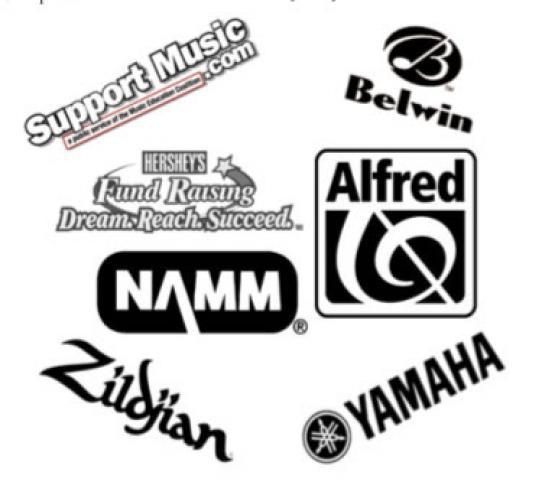As the world met economic turmoil in October of 2008, no industry tat could hide from the effects of the downturn. Yet, the entertainment trade, of which music is a part, is generally thought to be more resilient to a recession. It is also easy to fall into the trap of characterizing 2008 by its last three months. Indeed, for the music industry, the first three quarters were rather uneventful. There were still as many illegal downloads as before in the recording side of things, and this affected record labels. However, as this article will suggest, sales of music products were much firmer, and many keyboards, guitars, drum sets, and accessories were purchased regardless.
Overall, the year had two very different phases. Earlier on, Guitar Hero surpassed the $1.5 billion mark and attracted competitors to create Rock Band and even a new Wii music game. Even though playing these games does not involve use of real guitars or drum sets, more people are drawn into playing music and this could lead to an increase in musical instrument sales down the road. In the past few months, against a background of a declining economy, guitar sales have in fact been bringing in steady profits for retailers.
Companies like Amazon.com and Best Buy have seen the sales of musical instruments rise and are starting to hop on the train. Best Buy announced last year they would open between 75 and 80 music stores by the end of 2008. So far they have opened around 70 in 26 states. Amazon has also started selling musical instruments on their website. In the past they have mostly linked to other retail websites like Musician’s Friends and Sam Ash Music, but this year they have started selling more music products directly. Due to these two mega-retailers entering the music product scene, Moody’s Rating Agency has reduced the credit rating of Guitar Center bonds, whose paper used to monopolize the musical instrument market. To combat this, Guitar Center appears to have been concentrating on “lean manufacturing”, i.e. improving performance of the already existing stores rather than opening new ones.
A number of acquisitions occurred in 2008, but it was by no means a dramatic year. Yamaha annexed the Bosendorfer Piano Company promising to keep the quality and integrity of Bosendorfer’s products consistent but also “give discerning pianists additional choice in instruments”. The Samick Company, mega manufacture of music instruments out of Korea, purchased the German company Seller Pianos when it had filed for bankruptcy protection. Roland is now in a majority position with Cakewalk Software, cultivating better integration between products. D&M Holdings, the audio company that already owns Marantz, Denon, and Boston Acoustics acquired the U.K. mixer manufacturer Allen & Heath. Fender, who was having difficulties obtaining vacuum-tubes for their amps purchased Groove Tubes. Steinway Music, known for it’s concert grand pianos reached beyond instrument sales into audio recordings and bought online classical recordings retailer Arkiv.com. Earlier in the year, Gibson Guitars and TC Electronic announced they would merge, but in May the deal was cancelled.
Many companies beefed up their already running operations. Conn-Selmer expanded its Elkhart woodwind plant for improved production of it woodwind brands. Since Fender’s acquisition of Kaman in 2007, production of Guitar Guitar moved to the Ovation plant in Connecticut. To reduce shipping times and costs, west coast based drum company Pearl opened a warehouse on the east coast. Paul Reed Smith Guitars unveiled a plan to build an 80,000 square foot plant addition. PRS will use the new space to branch out into acoustic guitar and amplifier production. D’Addario opened a new 36,000 square foot distribution center to more quickly retailer orders.
2008 was also a year of music industry milestones. The family business Martin Guitars marked their 175th year of continuous guitar production. The Zildjian family, possibly the world’s most renowned cymbal makers, celebrated 385 years of operation that date back to the Ottoman Empire (modern day Turkey). Hamilton Stands, makers of the folding music stands turned 125 this year. Washburn Guitars also celebrated 125 years of production. J.J. Babbit, the company who made famous hard rubber mouthpieces for woodwinds turned 90. The Japanese guitar company Takamine turned 45, jazz guitar maker Bob Bennedetto celebrated 40 years of manufacturing, Regal tip, makers of drumsticks, marked it’s 50th year and Dean Guitars made it to 30 years in business.
As far as product development goes, 2008 was more about polishing and improvement than new product development. Digital drums and percussion are nothing new, but Roland has released a new series of kits with an attractive price tag. Also, the number of digital handheld recorders sold doubled from 2007 to 2008.
Given the current economic circumstances, most entrepreneurs are running and hiding but there were a few notable start-ups and a giant revival this year. The founder of DOD and Digitech Electronics, John Johnson, came back from his sabbatical entering XP Audio with Motion Sound concert speakers and Forge Amplifiers. At NAMM this year, Harmony Guitars was reborn and Ultimate Support stands were revived.
It is unlikely, of course, that music products will see substantial growth, but unless the recession takes an even more serious downturn, it is doubtful any of the huge music retailers will go bankrupt in 2009.
By Adam Nicholas Owens
Sources: The Music Trades Magazine, January 2008 and NAMM.org
